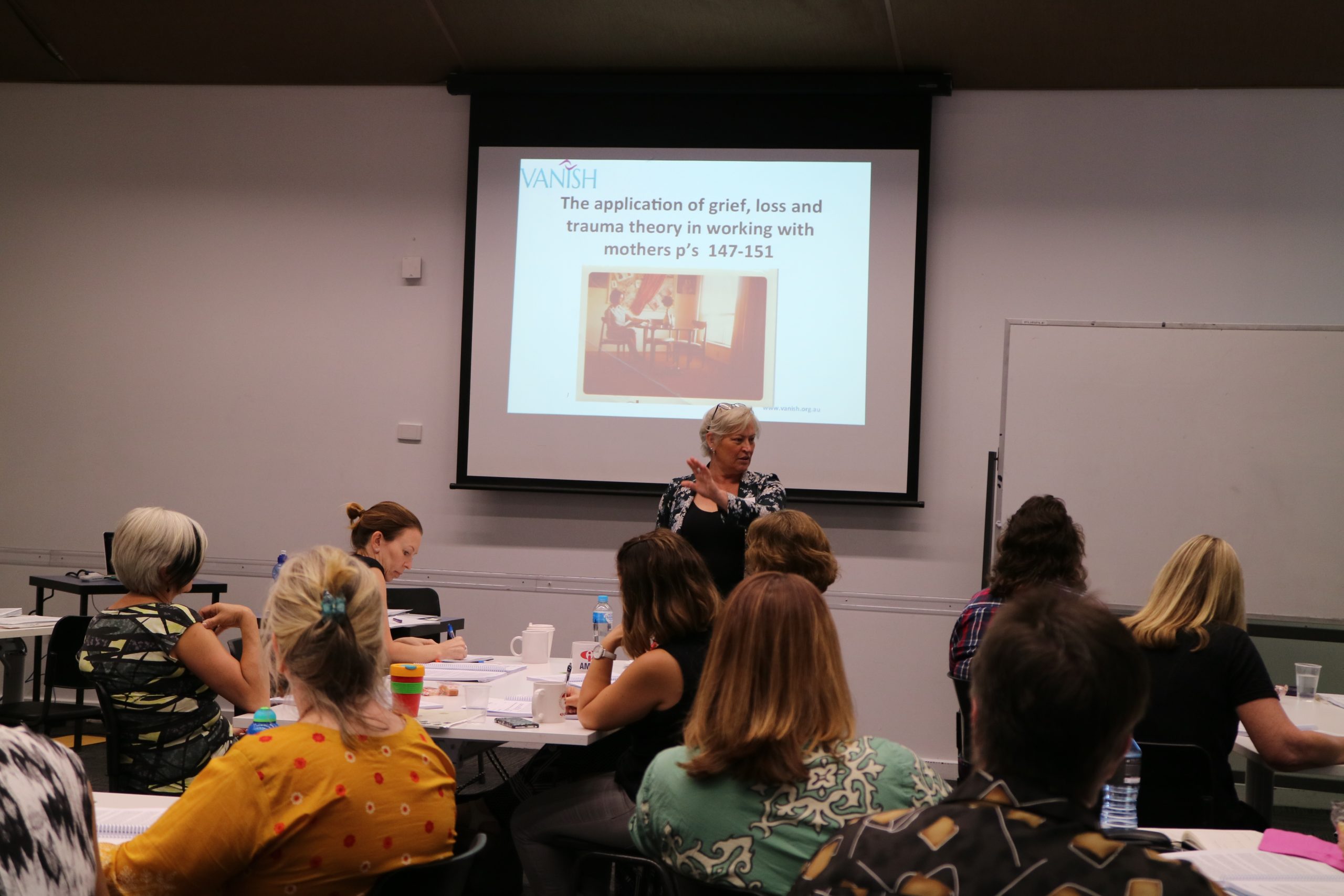For Professionals
VANISH Post-Adoption Training for Counsellors and Mental Health Professionals
The psychological and emotional impacts of past adoption practices are often significant and long-term. These impacts can include depression, anxiety, post-traumatic stress disorder, and complex grief and loss.
However, in a society that celebrates adoption, the trauma of adoption has long been unrecognised and there is a lack of training about the impact of adoption in university curricula and professional development.
To address this gap in awareness, VANISH offers professional training on the impact of adoption and provides secondary consultations for counsellors and health professionals.

“Working with Loss and Trauma Related to Past and Forced Adoption Practices”
Delivered by Dr Sue Green, Psychologist and Trainer, PhD (Psychology) MAPS
Separation from a child or from family through adoption has lifelong effects which have frequently been ignored or dismissed by mental health professionals in the past. Individuals may come with a broad range of presenting difficulties, including depression and anxiety that may be related to adoption or separation from a child.
In this two-day training program for counsellors, psychologists, and other allied health professionals, participants will learn how to provide support and draw on counselling approaches to work with individuals experiencing separation and loss through past adoption practices.
For more information download our flyer.
Please contact us to register or express your interest in future training opportunities.
“Thank you from myself and future and present clients”
“Incredibly enlightening. Learned so much, feel so much better informed”
Secondary Consultation
VANISH can assist other service providers by offering specialist information, advice and expertise on how to best support someone affected by past or forced adoption.
Secondary consultation can be offered by phone, email or in person and is flexible to meet the needs of the service provider.
Counsellor Registration
VANISH maintains a register of counsellors and psychologists who have knowledge of separation and adoption issues and experience working with this client group.
If you are interested in being added to our register, you must have at least 5 years’ clinical experience and be a registered and full member of one of the following:
- Psychotherapy and Counselling Federation of Australia (PACFA)
- Australian Psychological Society (APS)
- Australian Counselling Association (ACA)
- Australian Association of Social Workers (AASW)
Applicants should have completed the VANISH training, the APS training on understanding forced adoption, or have considerable experience working with the post-adoption community.
For more information, please contact us to speak to our Support Coordinator.
Get in touch with our helpful team
Contact us to find out more about our services or have a chat about how we can best support you.
